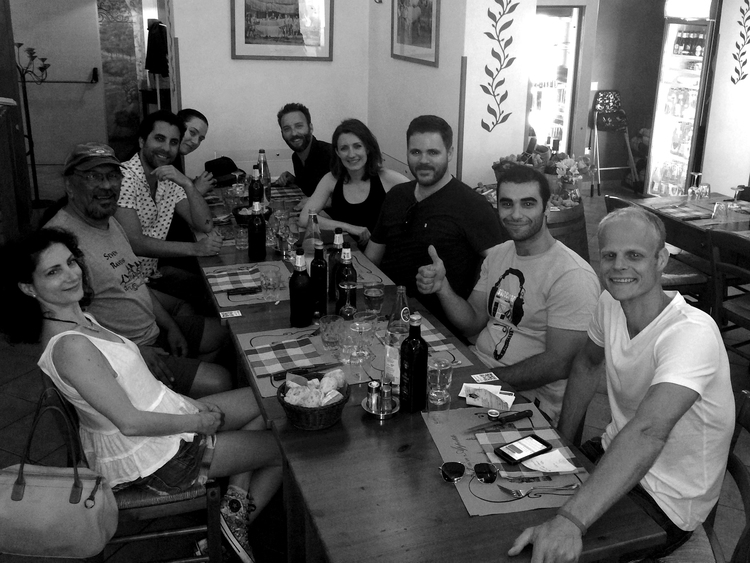Florence, Revealing Spannocchia Residency May–June 2015
November 6, 2015
Erin Gleason, Cohort ’15
“Arriving at each new city, the traveler finds again a past of his that he did not know he had: the foreignness of what you no longer are or no longer possess lies in wait for you in foreign, unpossessed places.”
― Italo Calvino, Invisible Cities
As I traveled with my cohort on the way to Florence and on the way to my past, I was curious to discover if the city would be at all like my memories of it 17 years ago, when Fortune gifted me the opportunity to live there for a summer to study Italian. I had not been to the Tuscan capital since. Would it still be the Florence – my Florence – I explored during my youth? Would the city reveal ghosts of myself as I walked its streets? What filters would I see the city through; what lost perspectives would be rediscovered?
Unfortunately (or fortunately, for some), fortune also gifts the art of forgetting. Even though I expected the nearly permanent quality of the city’s architecture to spark the raising of buried memories, it turned out my ghosts chose to remain in slumber and greeted me infrequently. Fortune’s gift of forgetting was also bestowed on me while trying to speak in Italian throughout the residency. Stumbling to remember what I learned years ago, “non so niente” became my motto. I know nothing – a phrase that simultaneously increases and decreases in truth the further we travel down the road of philosophical inquiry, and one that aptly described my re-discovery of Florence as well. Fortune is bittersweet.
.jpeg)
Florence is an urban vessel housing its losses and gains in fortune in the forms of art, architecture, and commerce. From the House of Medici’s rise to power and the stunning ‘propaganda’ it produced to its current iconography of designer shops and tourist queues, the “Athens of the Middle Ages” has known many possessions – my ghosts a mere blip in its epoch. As we navigated through the sea of selfie-sticks near the Duomo, pondered the Venus of Urbino in the Uffizi through the eyes of Manet and Freud, and made our way to the Galleria dell’ Academia to experience the magnitude of Michelangelo’s David and its collected admirers, the filter I found myself viewing it all through was not one of past ghosts, but the filter of present fortune.

It’s the fortunes of the present that will be revealed by artists and scholars of the future during their Florentine investigations, and it was the fortune of the present that brought Maria and Andreas from Athens to Florence that day and to the Irish pub our weary but happy group settled at. Our conversation was a series of new revelations, meandering through music, art, Italy, Greece, philosophy, Alzheimer’s disease, economics, debt, beer, and theater. The Greek referendum on whether to accept the European Union’s debt bailout package had not happened yet, and our new friends were generous with our questions about economic conditions and open in their opinions. Enjoying this moment in a city Fortune richly favored, it struck me how the grand gestures of history we study so closely will inevitably remain abstract images for us. They may inform our interpretations of the world, our being, and our futures, but when we find ourselves in the middle of events and conditions like our Athenian friends that may be seen as turning points in history, it is the fortune of the present that deeply affects our souls. I wonder what fortune lies in wait for Athens, a bride stripped bare of her ancient glories, a city and her people desperately trying to hold on to their identity and autonomy in the face of the European ideal and global debt economy? Maybe someday, Fortune will guide me there to be a witness.
